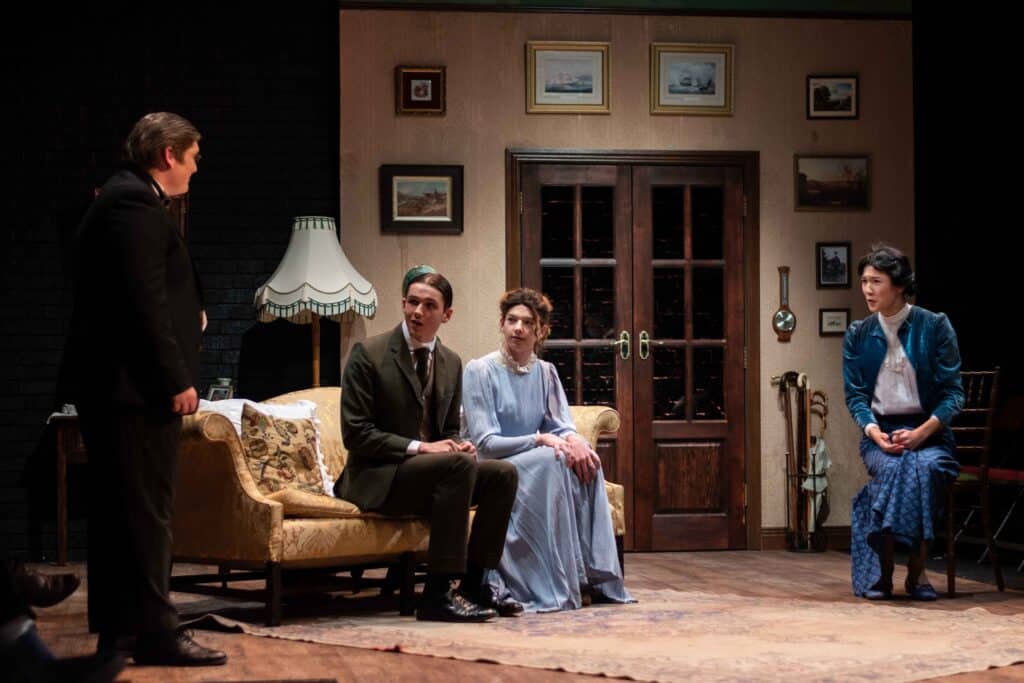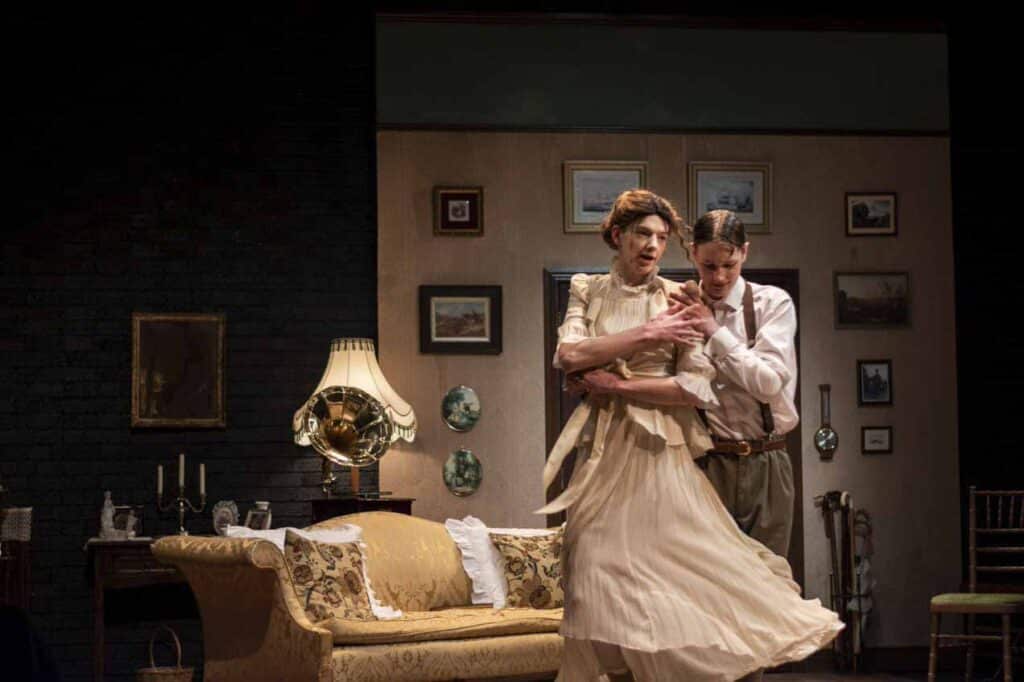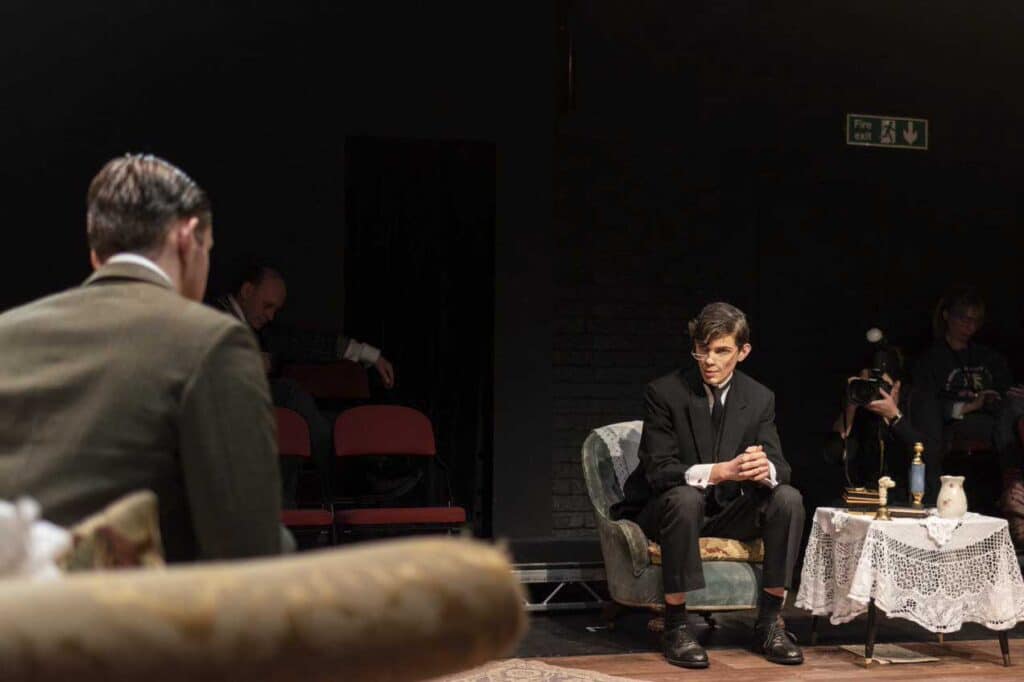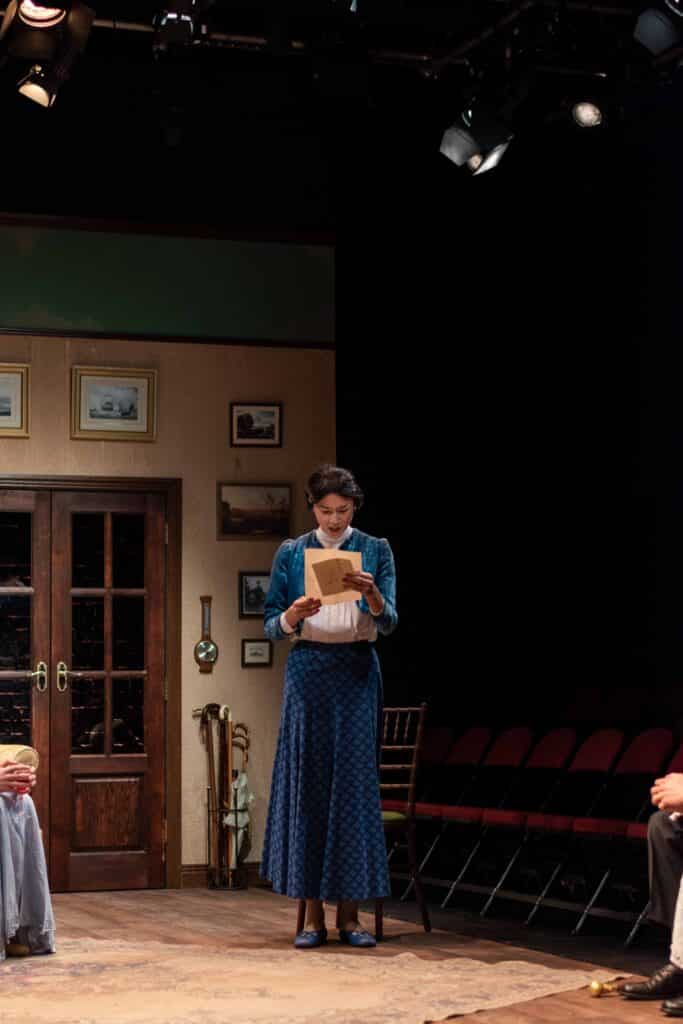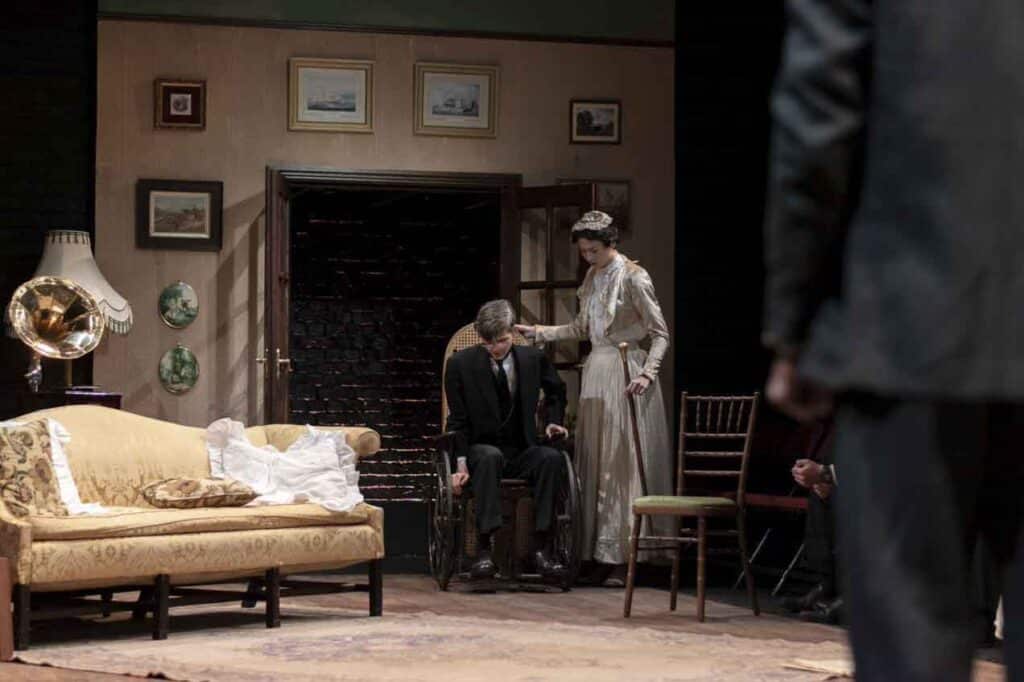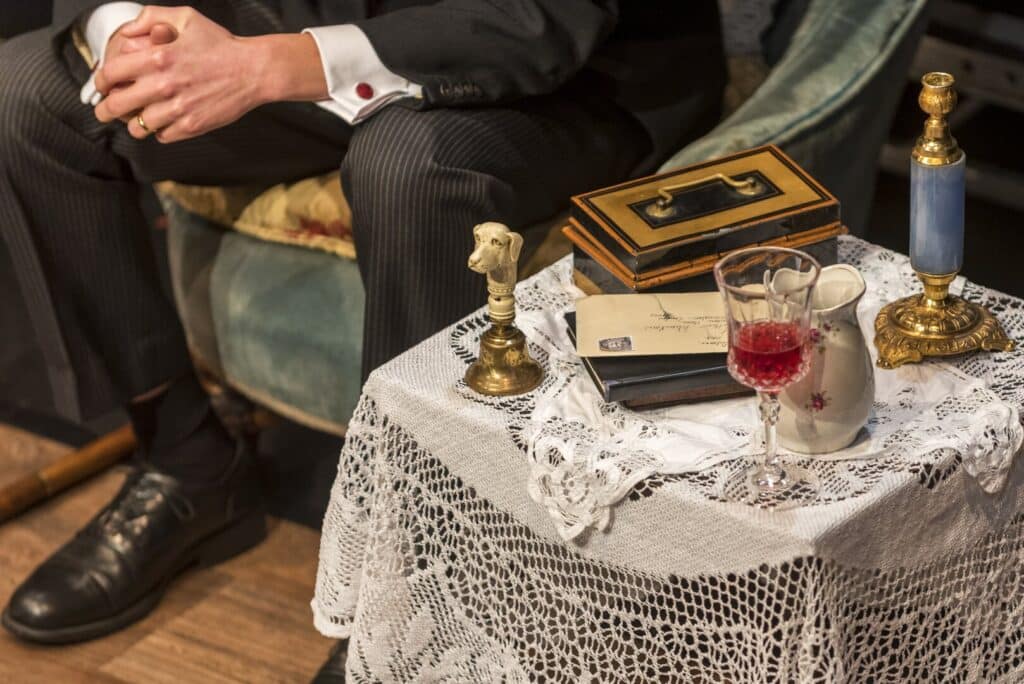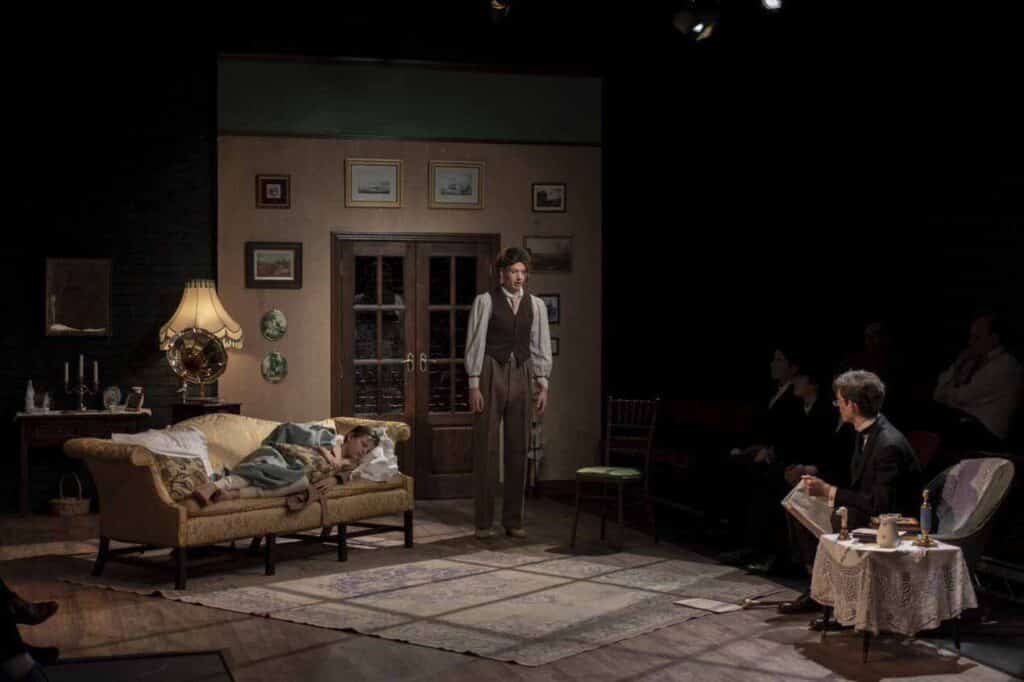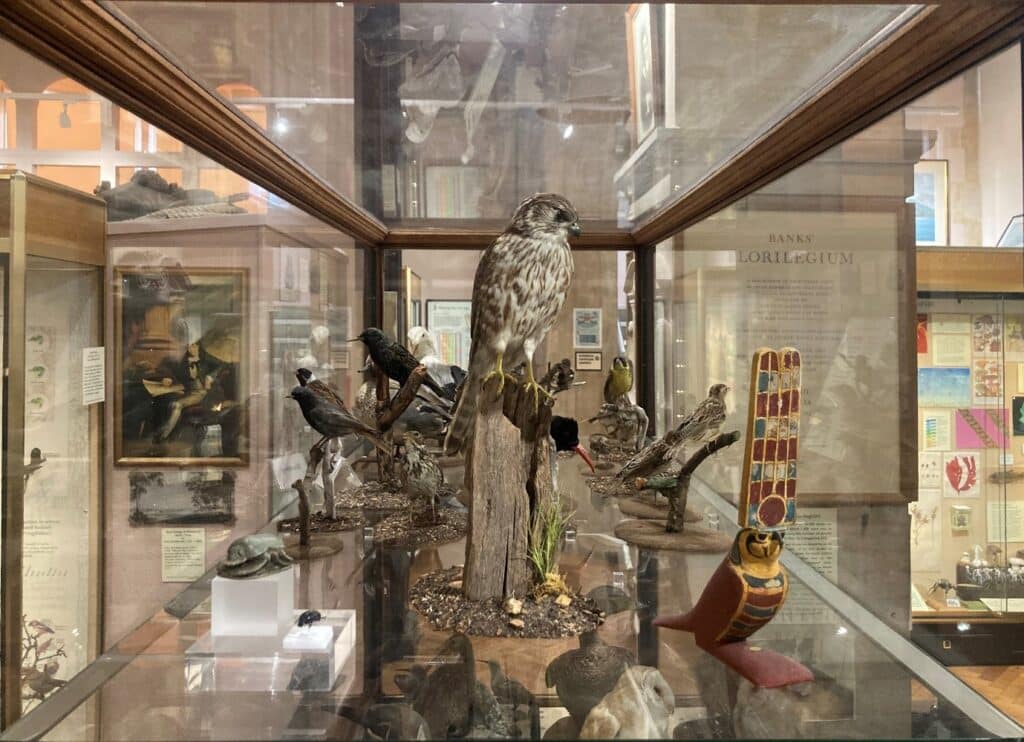Under the direction of Mr Broad and Alban N (Year 13), Evans’ House put on Terence Rattigan’s The Winslow Boy in the Caccia Studio to the deserved acclaim of boys, teachers and parents alike.
Rattigan’s classic is fundamentally concerned with the hardship and difficulty that is too often involved in the pursuit of justice. It depicts the struggles of Arthur Winslow – whose stern, although fair, demeanour was captured excellently by Wilfred R – and his family – wife (Joshua ON), son (Christian A) and daughter (Joseph B) – to exonerate the youngest Winslow child, Ronnie Winslow, and with him their family name, from the accusations levied against him.
The action opens as Ronnie Winslow (Cosmo B), a cadet at Osborne Naval College, (or he is when the play begins, at least) returns home two days early for the holidays to the surprise of his family members. With him, he brings a letter detailing that he has been expelled – or “sacked”, to use the slang of his elder brother, Dickie Winslow – for stealing a postal order from another cadet. Ronnie, however, insists that he is innocent. As a result, Arthur, trusting his son fully, endeavours to force the admiralty to admit the same.
As such, he hires the most reputed barrister of the time, Sir Robert Morton (played by Hector B), whose mantra “let right be done” captured rather well the mood of the production. A thorough cross-examination, in which, as Morton reveals afterwards, the barrister “laid him a trap… and left him a loophole” such that “anyone who was guilty would have fallen into one and darted through the other”, is enough to convince him of Ronnie’s innocence, as he “did neither”.
This is perhaps one of the play’s most important moments, not least on account of what it reveals about Catherine Winslow, Ronnie’s elder sister: not only does the speed with which she unravels Sir Morton’s line of questioning speak to her mental skill, but her recognition of Morton’s own interrogative aptitude marks an instance of reconsideration, as Catherine comes to appreciate the work of a man that she initially loathed.
Catherine’s future is then inextricably intertwined with that of her brother, as her engagement with John Watherstone (Inigo S) is jeopardised by the court case, Although her father decides it is then time to admit defeat, she insists that the fight continue, and decides to give up on her engagement for the good of her family. For all her wit and unwavering morals, flawlessly presented by Joseph B, Catherine is perhaps the play’s most compelling figure. Mr Broad, in his director’s note, clearly thought similarly, writing that, “the longer I’ve spent with the play the more I’ve felt that it could be titled ‘The Winslow Girl’”.
The verdict, ultimately, after two years of struggle and sacrifice, is that Ronnie is innocent. The play closes with a moment of reconciliation between Catherine and the departing barrister. We are left, finally, on an optimistic note, as Catherine endeavours to remain a Suffragette and Robert muses that he hopes to see her across the floor one day in the House of Commons.
Although The Winslow Boy is somewhat of a known quantity within the school’s drama sphere – indeed, just under 20 years ago, when Mr Broad was the House Master in Evans’s (now CDNP), he was instrumental in the production of this same play. This January, Rattigan’s classic was reimagined and revitalised in a way that left none underwhelmed.
Much credit, then, is due to the directing team of Mr Broad and Alban N which, in some ways, was similarly a reinvention of past excellence. More than 30 years ago, Alban’s father, Mr Nolan, and Mr Broad, collaborated on a production – Pinter’s The Birthday Party – in the same studio.
The set was incredibly composed and complemented by ornamentation that captured perfectly the warm, if formal, atmosphere in the Winslow family sitting room. Ultimately, it was the high calibre of the actors, and the conviction with which they assumed their dramatic roles, that established the show as an outstanding testament to what House plays can be.
